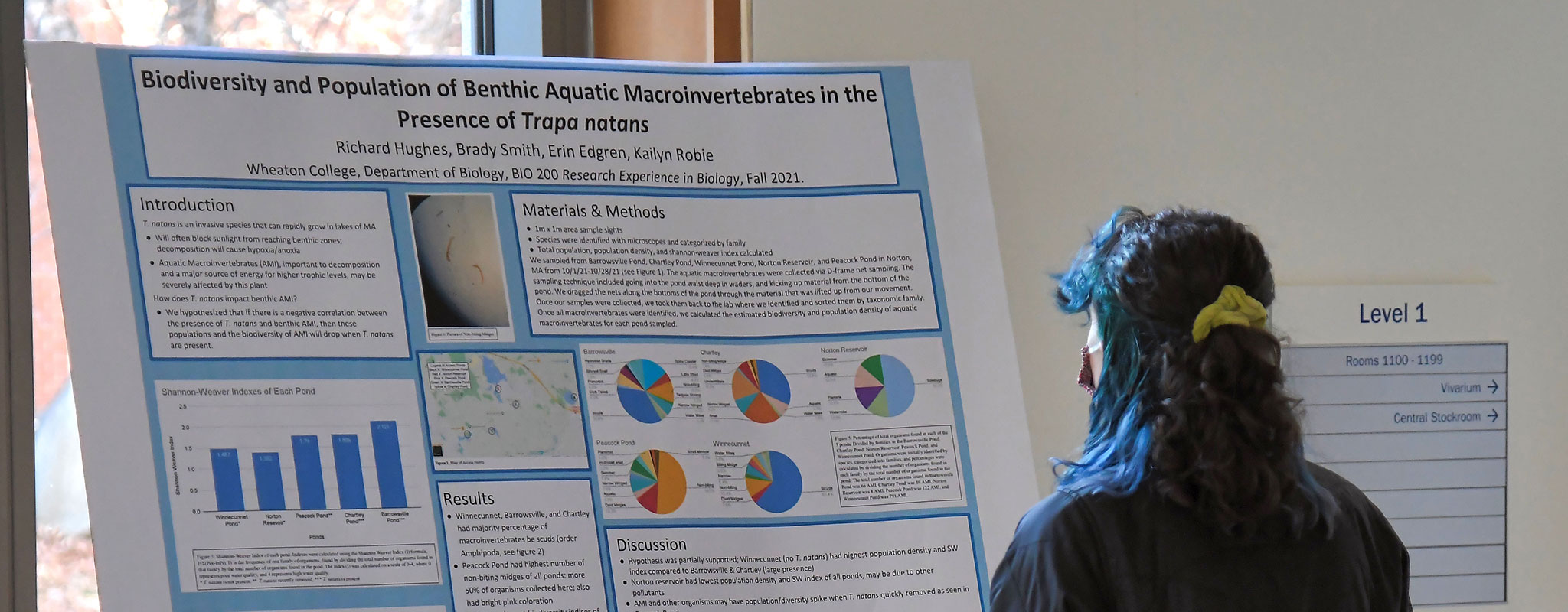In their second year, students begin infusing their education with real-world experience and professional connections through the Sophomore Experience (SE). Students explore career possibilities, make connections with practitioners in a chosen field, and develop passion projects through SE courses, on campus experiences, or off-campus internships or service projects.
Internships and Service Projects
Internships, research projects, and sustained volunteer work can also complete the Sophomore Experience, including projects undertaken in the summers before and after the second year. The Wheaton Edge ensures that all students can engage in a funded internship opportunity.
The Sophomore Experience provides an early opportunity to put classroom learning to work. With many options to explore, each student can find an option that is right for them, knowing that the Sophomore Experience is only the first step in gaining professional experience.
Experiential Classes
Wheaton offers a range of classes that connect academic learning to professional experience across the divisions of the college. Some classes are targeted toward students who have declared a particular major, like the Biology Research Experience course, in which students work in small groups to design and carry out scientific research projects with unknown answers. In one section of this class, students explore the connections among tissue regeneration, inflammation, and the innate immune system using a long-finned zebrafish research model.
Other classes serve students across many majors. Grant Writing for Social Justice, for example, teaches students the mechanics of grant proposal writing and the political and social aspects of philanthropy and funding with a focus on social justice organizations. Students learn from the Wheaton faculty and from guests who visit to discuss how grants and grant writing function in their nonprofit settings.
Enhanced Employment and On Campus Leadership
Some on-campus leadership and employment positions are designed to ensure that students are building professional skills, receiving regular feedback, and reflecting on their experiences to help in setting future goals. Learning to lead Dialogue across Difference, becoming a peer tutor in a subject area, and working on some faculty research projects are a few examples of on campus experiences that provide a first step into professional practice. These enhanced experiences count as a Sophomore Experience.
